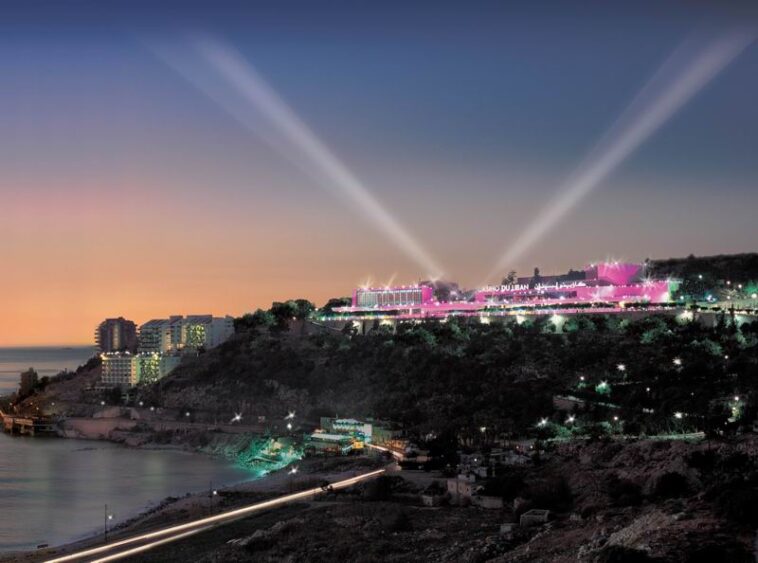The allure of casinos transcends geographical boundaries, captivating players from various cultures. However, for Arabic players, engaging in casino activities raises complex questions, given the intersection of gambling, cultural norms, and religious teachings. Casinos, often associated with luxury and entertainment, can clash with Islamic principles that emphasize restraint and avoidance of activities that promote uncertainty.
Gambling Regulations Worldwide and Cultural Variations
Around the world, gambling regulations vary widely, reflecting cultural and religious considerations. While some countries embrace casinos, others restrict or outright ban them. Arabic nations, with their diverse cultural backgrounds and interpretations of Islamic teachings, exhibit different approaches. Saudi Arabia and Qatar enforce strict anti-gambling laws, whereas the UAE permits betting on horse racing but prohibits casinos. In contrast, Lebanon and Egypt host casinos that cater to both locals and tourists, demonstrating the intricate dance between cultural acceptance and regulatory frameworks.
Islamic Viewpoints on Gambling and Its Implications

Islamic teachings unequivocally label gambling as “maisir,” an activity that leads to moral decay and social harm. Quranic verses and Hadiths emphasize the importance of earning through honest labor and warn against seeking wealth through games of chance. The concept of “riba,” or unjust enrichment, is closely related to gambling, further highlighting its incompatibility with Islamic ethics.
Impact of Casinos on Arabic Communities and Lifestyles
The presence of casinos in Arabic communities poses significant socio-cultural challenges. Traditional values and close-knit family structures might clash with the individualistic and potentially addictive nature of gambling. The rise of luxurious integrated resorts in the region sparks debates about the preservation of local heritage and the influence of foreign entertainment trends on Arabic lifestyles.
Balancing Personal Choices with Religious Obligations
Navigating the casino dilemma involves striking a balance between personal desires and religious obligations. Arabic players face internal conflicts as they weigh the excitement of casino games against the teachings of their faith. Many seek guidance from religious scholars who offer interpretations that address the modern gambling landscape, reflecting the dynamic nature of Islamic jurisprudence.
Casino Industry’s Efforts to Accommodate Arabic Players

The casino industry acknowledges the significance of Arabic players as a valuable demographic. To bridge cultural gaps and accommodate religious sensitivities, some of them have introduced prayer facilities, Arabic-speaking staff, and alcohol-free zones. These measures aim to make the casino environment more inclusive for Arabic visitors, aligning with the industry’s evolving focus on cultural competence. To learn more about how casinos are adapting to cater to Arabic players, you can check out the Haz casino review which provides insights into the efforts being made to create an environment that respects both entertainment preferences and cultural values.
Social and Psychological Aspects of Gambling Addiction
The enthralling nature of games can lead to addiction, transcending cultural backgrounds. Arabic players, like others, are vulnerable to the psychological allure of gambling, which may provide temporary relief from life’s stresses. The resulting financial strains and emotional toll underline the urgency of addressing addiction holistically within Arabic communities.
Strategies to Promote Responsible Gambling among Arabic Players
Promoting responsible gambling requires collaborative efforts between governments, communities, and the casino industry. Education campaigns, helplines, and support groups tailored to Arabic players can mitigate the adverse effects of addiction. Integrating responsible gambling practices within cultural contexts enables individuals to enjoy entertainment while safeguarding their well-being.
Case Studies: Countries Reconciling Casinos and Islamic Values

Lebanon stands out as a case study of a country striving to harmonize gambling establishments with its cultural identity. The Casino du Liban, while offering entertainment, adheres to strict regulatory guidelines and ensures adherence to local values. Similarly, Malaysia, with its predominantly Muslim population, maintains a dual legal system, allowing non-Muslims to gamble while adhering to Sharia principles.
Cultural Shifts: Changing Perceptions of Gambling among Arabs
Cultural attitudes toward gambling among Arabic populations are evolving. While traditional perspectives view gambling as morally objectionable, younger generations are more open to the idea of entertainment within the bounds of religious ethics. The rise of online casinos and shifts in societal norms contribute to changing perceptions of gambling.
The Rise of Halal Gambling: An Emerging Trend
In recent years, an intriguing trend has emerged – the concept of “halal gambling.” This term might seem contradictory at first, but it refers to these activities that align with Islamic values and ethical considerations. Some startups and entrepreneurs have ventured into this space, developing games and platforms that avoid the pitfalls of traditional gambling. These ventures emphasize transparency, fairness, and community engagement while avoiding the addictive and exploitative aspects of conventional gambling establishments. This trend highlights the adaptability of Islamic principles to modern challenges, as well as the creative ways in which entrepreneurs are addressing the casino dilemma.
Safeguarding Youth and Future Generations

As Arabic societies undergo cultural shifts, concerns about the impact of casinos on youth come to the forefront. Young adults growing up in a globalized world are exposed to diverse influences, including Western entertainment norms. Educators, parents, and community leaders play a pivotal role in guiding the younger generation’s perceptions. Open discussions that address the religious, cultural, and psychological aspects of activities can equip youth with the tools they need to make informed choices that align with their values.
Future Prospects: Striving for Middle Ground
The intersection of Arabic players, casinos, and Islamic teachings remains a dynamic arena where multiple stakeholders interact. While divergent viewpoints exist, there is a growing recognition that nuanced solutions are necessary. Islamic scholars, policymakers, industry leaders, and religious communities can collaborate to create frameworks that facilitate entertainment while respecting religious commitments. Finding a middle ground involves ongoing dialogue, cultural sensitivity, and a shared commitment to promoting responsible practices.
Conclusion
The casino dilemma faced by Arabic players is a multifaceted challenge that requires thoughtful consideration. Balancing personal desires, religious convictions, and cultural norms is an intricate task. The journey to reconcile entertainment with faith underscores the need for open dialogue, evolving interpretations, and harmonious coexistence. By acknowledging the diversity within Arabic communities and embracing responsible practices, it’s possible to navigate this complex intersection while respecting individual choices and upholding Islamic teachings. In this ongoing pursuit of equilibrium, a collective commitment to ethics and mutual understanding can guide Arabic players through the casino dilemma, allowing them to make choices that align with their faith and values.





